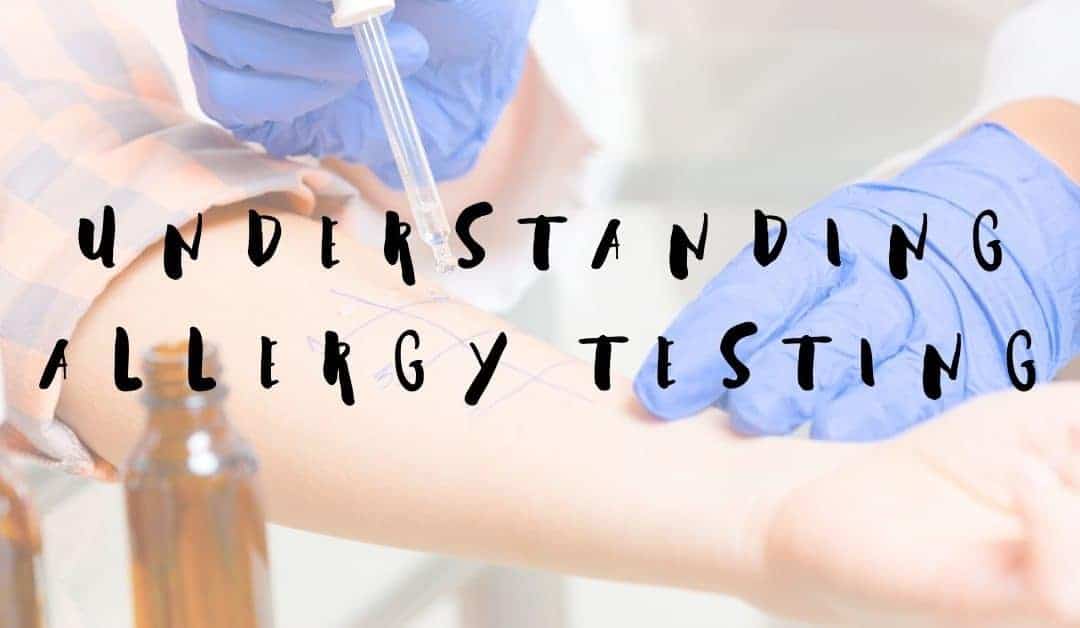What is Allergy Testing?
Allergy testing helps identify substances that trigger allergic reactions in your body. These substances, known as allergens, may include food, pollen, mold, pet dander, or medications. Allergy skin tests, which involve procedures that may cause swelling, redness, and itching, are conducted in a controlled environment to manage the rare risk of severe allergic reactions. Testing pinpoints these allergens, allowing doctors to create personalized treatment plans.
What Allergies Are
- Allergies happen when your immune system overreacts to a substance it sees as harmful.
- Common allergens include environmental factors, foods, food allergies, and insect stings.
- Reactions can vary from mild (sneezing or rashes) to severe (anaphylaxis).
How Testing Helps
- Testing confirms which allergens affect you.
- It identifies triggers, preventing future exposure.
- Results guide doctors in developing effective treatments, such as immunotherapy.
Understanding Allergy Symptoms
Allergy symptoms can vary widely depending on the type of allergy and the individual. Common allergy symptoms include itchy eyes, sneezing, facial tenderness, headache, fatigue, difficulty breathing, wheezing, dizziness, lightheadedness, and nausea. These symptoms can range from mild annoyances to severe disruptions in daily life. In some cases, allergic reactions can escalate to anaphylaxis, a life-threatening condition that requires immediate medical attention. Recognizing these symptoms early and understanding their potential severity is crucial for effective management and treatment.
Why Allergy Testing is Important
Testing isn’t just about identifying allergies; it’s about improving your quality of life. Without proper diagnosis, allergic reactions can remain frequent and severe, potentially leading to a severe allergic reaction.
Prevention
- Allergy testing helps you avoid triggers.
- Reducing exposure means fewer symptoms.
- A preventive approach keeps you healthier.
Accurate Diagnosis
- Allergy tests confirm if your symptoms stem from allergies or another condition.
- Misdiagnosed allergies can lead to unnecessary treatments.
- Knowing the exact allergen lets you target the problem.
Effective Treatment Options for Food Allergies
- Doctors use test results to suggest medication, lifestyle changes, or immunotherapy.
- Tailored treatments reduce the severity of reactions.
- Patients experience fewer interruptions in daily life. Effective treatment can also help manage hay fever symptoms such as sneezing, itchy eyes, and coughing.
Types of Allergy Tests: Skin Prick Test
Skin Prick Test
Doctors place small allergens on your skin and make a tiny prick. A raised bump indicates an allergic reaction. This test works well for diagnosing environmental allergies.
Blood Test
A blood test measures the level of allergy-causing antibodies (IgE) in your bloodstream. This option is ideal for people with skin conditions or those taking medications that might affect a skin test.
Patch Test
This test helps diagnose skin allergies. Doctors place allergen patches on your back and monitor for reactions after 48 hours.
Food Challenge Test
Under medical supervision, you consume small amounts of suspected allergens to confirm food-related allergies. Doctors only recommend this test when absolutely necessary.
Preparing for Allergy Testing
Consult with Your Doctor
Schedule an appointment with your healthcare provider to discuss your symptoms. Your doctor will determine which test suits your condition.
Stop Certain Medications
Some medications, like antihistamines, can interfere with test results. If certain medications are not stopped, there is a risk of developing a severe allergic reaction during the testing process. Your doctor will guide you on what to avoid before testing.
Follow Specific Instructions
- Wear comfortable clothing for skin tests.
- Avoid makeup or lotions that may affect skin tests.
- For blood tests, stay hydrated to make the process smoother.
Bring a Symptom Diary
Record symptoms you’ve experienced and when they occur. This information gives your doctor valuable clues about your potential triggers.
Interpreting Allergy Test Results
Understanding Positive and Negative Results
- A positive result indicates an allergy to the specific substance tested.
- A negative result rules out an allergy to that allergen.
- Sometimes, further tests or food challenges might be necessary to confirm findings.
False Positives and False Negatives
Allergy tests could be better. Environmental factors, medications, or timing can affect results. Discuss any concerns with your doctor.
Next Steps After Testing
- Create an action plan with your doctor. Allergy skin tests can help in creating an effective action plan by identifying specific allergens and guiding treatment options.
- Avoid allergens or consider immunotherapy to build tolerance.
- Keep track of changes in your symptoms over time.
Managing Allergies
Managing allergies involves a combination of avoidance, medication, and lifestyle changes. The primary goal of treatment is to alleviate symptoms and prevent severe allergic reactions. By identifying and avoiding known allergens, you can significantly reduce the frequency and severity of allergic reactions. Additionally, making certain lifestyle adjustments, such as using air purifiers to reduce dust mites or avoiding outdoor activities during high pollen seasons, can help manage symptoms effectively.
Medication and Treatment
Allergy medications play a crucial role in alleviating symptoms, though they may not eliminate the underlying allergy. Common allergy medications include antihistamines, decongestants, and corticosteroids, which help manage symptoms like sneezing, congestion, and inflammation. Immunotherapy, also known as allergy shots, is a long-term treatment that involves administering small doses of an allergen to help the body build tolerance over time. Another form of immunotherapy, sublingual immunotherapy, involves placing a small amount of allergen under the tongue. For severe allergic reactions, emergency epinephrine autoinjectors, such as EpiPen and Auvi-Q, are essential. Working with a healthcare professional to develop a personalized treatment plan is vital for effectively managing allergies and improving your quality of life.
Take Control of Your Allergies Today
Allergy testing is the first step toward a healthier, more comfortable life. Don’t let symptoms hold you back. Schedule an appointment with ENTicare to learn more about your triggers and treatment options. Visit ENTicare Allergy Services to book your consultation today!

